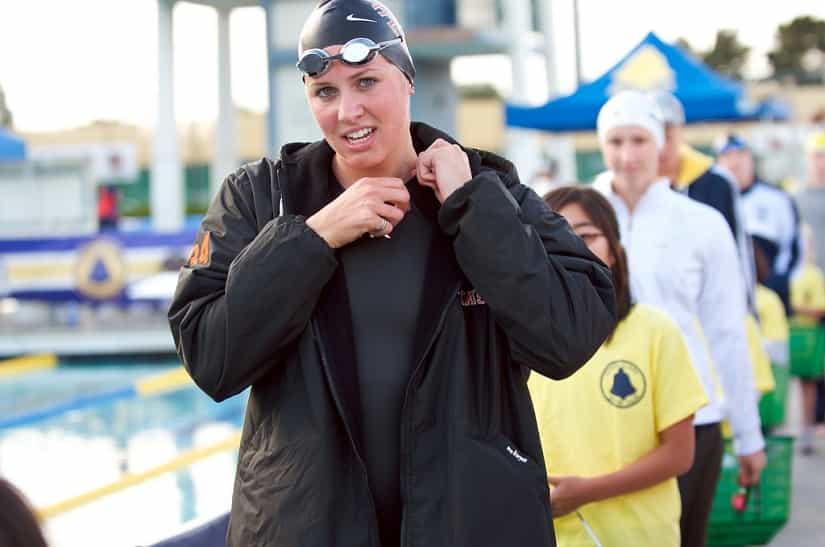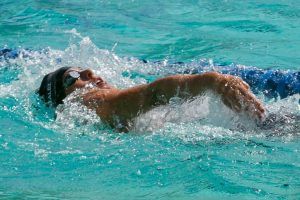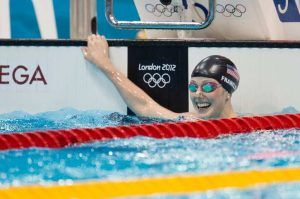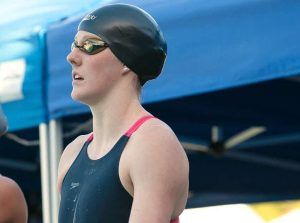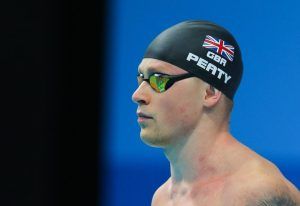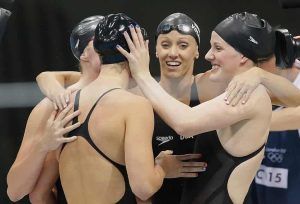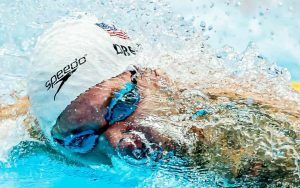You won’t always be the most talented or the fastest swimmer in the pool. But you can be the most consistent.
You can have the greatest facilities in the world. A world-class coach. A support system that is positive and encouraging. You can have a custom-designed nutrition plan tailored specifically to your needs, and have a strength coach on dial to help you in the gym.
But without consistency, it’s not worth a chlorinated lick.
All that awesome advice, all the support, all that knowledge and power—all for nothing without the consistency to go along with it.
After all…
- You say you want to improve your kick, but you aren’t adding any extra kick sets to your practices.
- You say you need to improve your underwater dolphin kick, but you keep doing your push-offs and breakouts the same way you always have.
- You say that you want to improve your core strength, but after each practice you go sit in the hot tub instead of doing core work.
Think of the importance of consistency this way: the way you perform at the big meet is going to be a reflection of the averages in your training.
And being consistent over long periods of time is not easy. It requires building good training habits, it means being patient, and it requires an implicit understanding that in order to be successful you need to get your reps in.
Most swimmers will say that they understand this. That they know they need to be consistent.
And yet, far too many will work super hard for a few days and then slip off the face of the planet for a week or two, continually repeating this go-go-and-stop-stop approach to their training, leaving them with a low average.
Here are a two things you can do to raise your average of consistency in the pool:
Log your workouts.
Quelle surprise, right?
But logging your workouts is not only the easiest way to get yourself some accountability and some much-needed self-awareness, it’s also a cheap and scientifically proven way to get better results from yourself.
Whatever form you use, a spreadsheet, a Word doc, one of the million tracking apps, a notebook, or even loose-leaf paper, track your workouts. It will provide you with an accurate overview of your training, nutrition and even sleep.
A bird’s eye-view of your training can help combat inconsistent training by showing you what happens right before you fall off (too much stress, lack of sleep, etc) so that you can avoid those pitfalls moving forward.
Having your workout history at hand can also show you that your expectations of having a much-improved kick are a little overblown given that you’ve done three kick sets in the past month, or that your core strength is stagnant because you haven’t done any ab work in weeks.
Grade your workouts.
One of the biggest mistakes swimmers make when they track and log their workouts is not measuring the things that matter most in their training. Overall volume and even attendance isn’t an accurate indicator of effort and focus.
This is one of the reasons that two swimmers, who attend all the same practices and swim the same meters, can have wildly different results when it comes to racing at the big meet.
Showing up to practice, while half the battle, is not enough.
How are you training while in the water? A simple way to stay on top of giving a consistent effort is to grade yourself after each workout. Out of 10, or with a letter grade, or with an emoji of your choice.
Since I was a 12-year old age grouper I have always given myself a quick ranking out of 10 for how I did at practice. The power of this simple action is profound the more I think about it in that it really forced me to be honest about how I was swimming.
Knowing that I had to grade myself later on pushed me while in practice. I wanted to be able to go home and write a 9.9 out of 10 because it felt good. Which meant that on a day when I felt like a “5” I would still push myself so that I could avoid having to give myself a bad grade.
The Takeaway
If you looked back at the “average” of your recent training, would you say that it matches up to the expectations that you have for your swimming?
If not, no worries—start logging and grading your workouts starting today and start getting more from your time swimming around the black line.
You won’t always be the most talented swimmer in the pool, or be the tallest, or be the swimmer with the best facilities or coaching, but you absolutely can be the most consistent athlete in the water.

